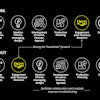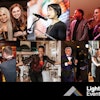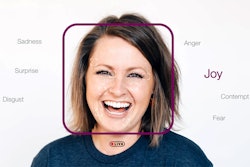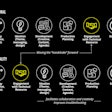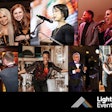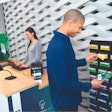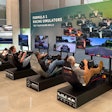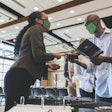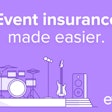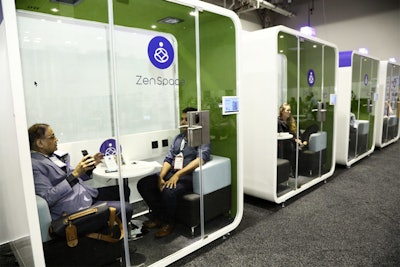
In contrast to previous years, most event technology won’t be that shiny or new in 2019. Instead, explained Marco Giberti, founder and C.E.O. of technology and media investment firm Vesuvio Ventures, “Technologies that emerged during the last couple of years will be generating additional traction. We are getting better use cases and success stories around augmented reality, travel-related technologies, and artificial intelligence for events.”
One reason many tech providers will be stuffing the envelope instead of pushing it in the coming year is that buyers and users can't adopt as fast as developers can develop. “There is often disproportionate excitement around things that are shiny and new, but people don’t know what to do with them yet,” explained James Johnson-Miller, director of event technology for the IMEX Group.
In 2019, his team will implement tools to deliver exhibitor collateral through AR and help attendees listen to presentations through their smartphones and use facial recognition software to check into a social event. It’s a less exciting, but more practical approach, Johnson-Miller acknowledged. Nevertheless, event marketers and planners can still expect some surprises. Here’s what else to look forward to:
AR Dives Deeper
Augmented reality application developers will address the more practical uses for the technology in 2019. Chicago-based BundlAR just launched the first content management system for augmented reality that plugs into event mobile apps through an application programming interface (or API). The company is partnering with event mobile app developers, for example, to enable exhibitors—without the need for Wi-Fi—to easily showcase products virtually instead of purchasing a larger exhibit space.
In addition, Preview Technology from Gainesville, Florida, will continue to roll out its AR-based engagement app as well. Without having to download an app, Preview lets attendees access product information by pointing their Android or iOS mobile phone cameras at Preview codes placed strategically throughout an event space. The action drops users into a browser-based AR experience in which a social log-in gets them the desired content in exchange for their contact information. Preview is a way to capture “anonymous” booth traffic "the same way that cookies did for the Internet," said Preview C.E.O. and co-founder Jared Beasley.
Behavior Tracking Improves
Bluetooth beacons opened the door to other proximity-based event technologies. For example, the Indoor Lab in Dana Point, California, a provider of indoor foot traffic solutions for events, has recently partnered with Sunnyvale, California’s Quanergy to bring 3-D light detection and ranging (LiDAR) to trade shows and events. In addition to its ability to monitor attendee behavior, LiDAR can detect and classify objects, such as an active shooter or someone leaving an unattended package, allowing security personnel to react quickly to threats.
Business Travel Goes High Tech
Event travel and housing technologies will, as a category, disrupt “old school and legacy solutions” next year, said Vesuvio’s Giberti. For example, TripActions and TravelPerk—both offering in-house travel management and expense tracking platforms—will give corporate travel managers more options. Resiada, software that manages room blocks, and Meetingmax, a room block management and reservation system, will bring additional revenue and control to event managers. Planners will also be able to embed Stay22, an accommodation search tool that includes hotels, Airbnb properties, apartments, and hostels in the area, on their event websites.
Portable Office Space Grows
ZenSpace Event Solutions of San Jose, California, builds on-demand portable and private meeting spaces. The company’s “Smart Pods” are Wi-Fi-enabled enclosures outfitted with video displays, smart locks, smart lights, and power and USB outlets, and can be placed anywhere in an event space. The ZenSpace app allows users to remotely find and reserve space, plus pay and set calendar reminders. Ted Simon, chief marketing officer at ZenSpace, described the solution as “the lovechild of three well-known brands: the on-demand, app-based schedulability of Uber, shared workplace experience of WeWork, and consistent customer experience of Starbucks.”

